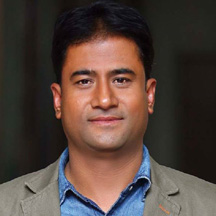Entertainment
Traditional musical training promotes culture preservation
Shanta Shrestha and many others of his generation clearly remember the 13 different types of rhythms played in the musical instruments ensemble played by the Newari community in Dolakha.
Rajendra Manandhar
Shanta Shrestha and many others of his generation clearly remember the 13 different types of rhythms played in the musical instruments ensemble played by the Newari community in Dolakha. The tunes were played widely during Jatras and evening Bhajans. However, after the death of a few musicians, three types of melody have already become extinct. Threatened by the idea of eventual extinction of the traditional musical practice, Newa Deya Debu has started a daily training session to induce the habit of musical engagement among the community members.
In the evening, Kumari Ghar in Dolakha Bazaar resonates the atmosphere of the annual Bhairav-Kumari Jatra, as people, young and ageing, male and female gather for traditional jam sessions. At a time when the interest in Newari mother tongue and culture is dwindling, Aatma Krishna Shrestha, one of the leading social activists in the
region, believes that the musical training is preserving the heritage for the newer generation.
Traditionally, the practice of playing instruments is reserved for men, but to keep the interest alive the organisers of the training project welcomed people of all genders and walks. Out of the 30 regular trainees, surprisingly, there are more women learning to play the traditional tunes—this is reshaping the gender dynamics as women have become the forerunners for preserving the cultural heritage in the region.
Kathmandu-based Newa Deya Debu informed that three more music trainers from Kathmandu will join the training session to enhance the learning experience of the students.




 9.89°C Kathmandu
9.89°C Kathmandu










